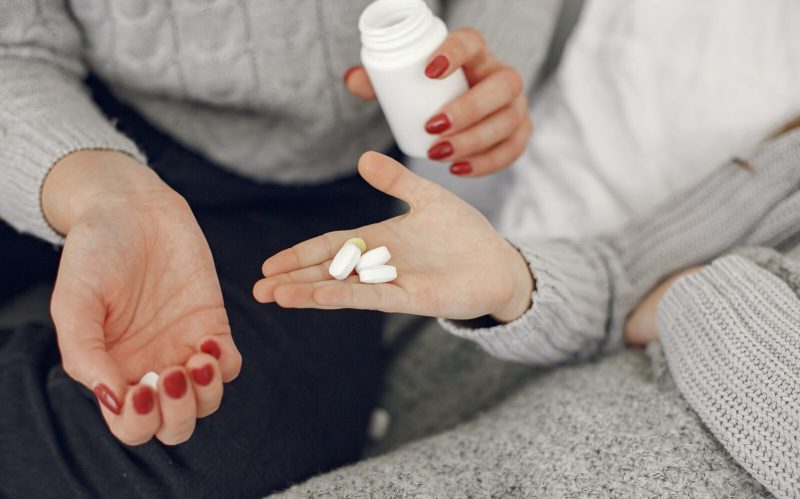The number of people taking antidepressants on the NHS has risen by more than a million in the last five years, new NHS data shows.
Over 8.7 million identified patients got the drugs on prescription during the 2023-24 financial year, compared to almost 7.6 million in 2018/19.
This works out to around 15% of the population, according to the latest available ONS population estimates.
After spiking immediately post-COVID, the number of people on antidepressants has been increasing steadily since 2021.
The data only counts NHS patients identified by association with an NHS number, which in 2023/24 was 99% of all antidepressant patients.
Young adults on antidepressants
People in their 20s is just one group whose antidepressant usage is higher than it was five years ago.
The number of patients aged 20-29 peaked in 2021/22, hitting over a million for the first time.
Since then the number has fallen slightly below the million mark, but still remains higher than both before and during the pandemic.
Arjan Mann, 22, started taking antidepressants as a London university student in early 2023, shortly before his dad died from cancer.
He said: “The depressing thoughts and all the overwhelming feelings are like weeds growing in a garden, then the antidepressant is like a de-weeder.
“I’ve felt the difference slowly over time and I’ve noticed I don’t feel as catastrophic in terms of my thinking as quickly.
“The grief over my dad is passing, so I take them now because of general depression, self-confidence, not knowing what I want to do in the future.
“I’ve had the next step in my life planned for so long, but now I’ve graduated uni it’s like, now what?”
He added that, in his experience, young men are less likely to take antidepressants because it is a way of admitting they are struggling.
Last financial year, the number of 20-29 year old men taking antidepressants was less than half that of 20-29 year old women.
Arjan said: “We’re taught through older generations and media to suck it up and cry in our own time.
“Trying to talk to young men about their mental health sometimes feels like talking to a brick wall.”
Arjan was already having counselling when his GP prescribed him antidepressants for extra support.
The NHS says this combination is often more effective than therapy alone, particularly in cases of moderate to severe depression.
Bridie MacDonald, 29, tried talking therapy and Cognitive Behavioural Therapy before starting antidepressants a year ago.
She said: “Neither therapy was getting to the root of the cause.
“After losing a job, I was under the pressure of getting into my late 20s and not knowing what I was doing.
“A lot has changed in my life since then, and I’m very happy.
“I’m currently in the process of coming off the antidepressants, but I needed that extra help from them because I was really, really struggling.”
Barriers for young adults
Despite more adults in their 20s taking antidepressants now than five years ago, their usage is less than most other age groups.
This could be due in part to unique barriers young adults face when it comes to starting medication like antidepressants.
Alyssa Edwards, 24, went through a particularly difficult process trying to get an antidepressant prescription two years ago.
When trying to get an initial appointment, she had to file a complaint against a GP receptionist who laughed when Alyssa started crying on the phone.
She said: “I was so astonished by how she reacted. A lot of the people I spoke to admin-wise at the GP office were quite insensitive.
“I met a lot of barriers and resistance, and I wonder whether it’s because I’m a young person speaking to older people in admin who maybe look down on the generational gap.”
The admin side of getting a prescription was something Isabella Stephenson, 21, also struggled with.
Booking, waiting for, and attending the “countless” doctor’s appointments felt overwhelming as someone new to the responsibilities of adulthood.
They believe this could deter other young adults from starting antidepressants, especially as depression already causes people to struggle with simple life tasks.
They added that by the time a person is 30, they are more likely to be used to the process of filling out forms or waiting for appointments.
Anagha Venkhatagiri, 21, decided against treating their depression with medication.
They said: “There are so many hoops to jump through in the UK healthcare system that it stops being worth it.
“I feel like a newborn deer trying to jump through them.
“It’s very recursive for anybody who already has diminished abilities considering the state of their mental health.”
Anagha noted that their decision not to take antidepressants could change as they get older and busier.
They said: “I’ll have a job that I’ll need to be able to do, and a lot of people relying on me as a spouse, a co-worker, things I’m not right now.
“You’re in a position then where you have so much responsibility that you can’t exactly indulge your own depression.”
For more information on antidepressants, as well as advice and support, you can read mental health charity MIND’s guide here.
Featured image credit: FreePik





